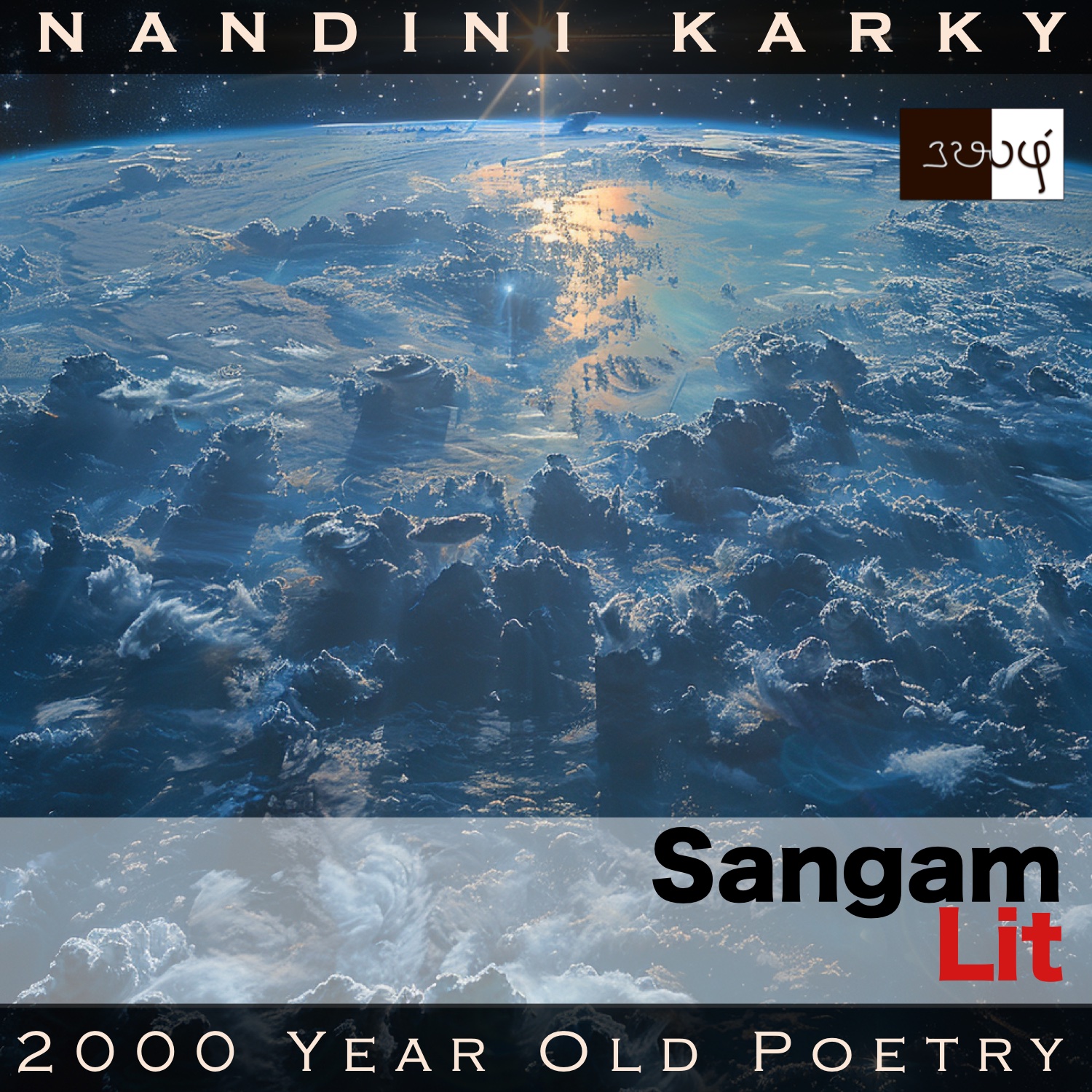Podcast: Play in new window | Download
Subscribe: Apple Podcasts | Spotify | Amazon Music | Android | iHeartRadio | TuneIn | RSS | More
In this episode, we listen to a unique perspective on impermanence, as portrayed in Sangam Literary work, Puranaanooru 365, penned by the poet Maarkandeyanaar. Set in the category of ‘Kaanji Thinai’ or ‘Defence’, the verse subtly instructs a king to follow the right path.

‘மயங்கு இருங் கருவிய விசும்பு முகன் ஆக,
இயங்கிய இரு சுடர் கண் என, பெயரிய
வளி இடை வழங்கா வழக்கு அரு நீத்தம்,
வயிரக் குறட்டின் வயங்கு மணி ஆரத்துப்
பொன்அம் திகிரி முன் சமத்து உருட்டி,
பொருநர்க் காணாச் செரு மிகு முன்பின்
முன்னோர் செல்லவும், செல்லாது, இன்னும்
விலை நலப் பெண்டிரின் பலர் மீக்கூற,
உள்ளேன் வாழியர், யான்’ எனப் பல் மாண்
நிலமகள் அழுத காஞ்சியும்
உண்டு என உரைப்பரால், உணர்ந்திசினோரே.
The literary device of projection is employed to highlight a truth in this verse. The poet’s words can be translated as follows:
“Having the vast sky fused with clouds, lightning and thunder as the face, and the two moving flames as the eyes, I am. Traversing spaces difficult even for the wind to cross, with diamond hubs and swaying chains of gems around golden wheels, they rode unto battlefields filled with enemies of strength, and even after they have left, without leaving, akin to women who sell their beauty, as many praise, I still live on, long may I live – So goes the lamenting song of the earth woman, say those who have sensed it!”
Let’s delve into the intricacies. The poet first sketches a visage for this entity called earth. He personifies this entity as a woman and says her face is that of the sky, with the constantly changing elements of clouds and its companions- thunder and lightning. For the earth woman’s eyes, he calls in the sun and the moon to shine in place. After that celestial sketch, the poet speaks as if in the voice of this earth woman and she says that great kings have lived and rode their bejewelled chariots to spaces where even the wind does not cross and they have fought enemies many in such battlefields. In the end, even those great kings have perished. When these great leaders who ruled over me left, I did not leave with them, and like women who sell their beauty, I still live on, cries the voice of this earth woman, or so say those who are knowledgeable, concludes the poet. In essence, the earth woman is crying because she did not part away with those great rulers and lives on, as others lay claim on her and rule over her. This account is meant to tell the king, ‘Heed the words of the one who has lived long. No conquest, no riches, nothing lasts and so seek the path of virtue during the days of your life’. A message we have been hearing in different words and here, we hear it as a lament of the long-living land!




awesome Nandini…very nice explanation